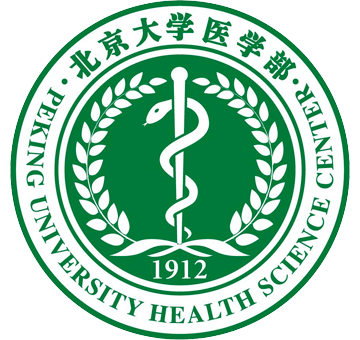Public health, precision medicine and more: announcing new JI Awards for 2021
New research awards for 2021 find the Joint Institute expanding into new areas of discovery.
Announced in July, the ten new projects follow a one-year delay in the typically annual awards cycle and bring many new collaborators to the Joint Institute (JI) collaboration with Peking University Health Science Center, including faculty from Biomedical Engineering, Cardiac Surgery, Computational Medicine & Bioinformatics, Internal Medicine, Molecular and Integrative Physiology, Psychiatry, and Radiology.
A project led by Professor of Environmental Health Sciences Chuanwu Xi represents the first JI award for the U-M School of Public Health.
“We are thrilled to engage so many new collaborators into our growing partnership,” said Amy Huang, MD, MHSA, the JI administrative lead for Michigan Medicine and an Adjunct Clinical Assistant Professor of Cardiovascular Medicine. “I’m grateful that interest in the JI remains strong on both sides and I know the projects will advance not only our relationship with Peking University Health Science Center, but more importantly, health and healthcare for our respective patients.”
Of the ten approved projects, three will focus on Cancer and Precision Medicine, an increasing area of emphasis for the partnership and the newest JI program.
Other programs – Cardiovascular, Renal, and Liver/GI diseases – received one new project each. Four remaining awards cover a variety of disciplines, from a study examining the drivers of depression among young physicians in both the US and China, to Xi’s Public Health-focused project with PKUHSC School of Stomatology Professor Yanmei Dong, DDS. Their study will introduce an emerging nanobubble technology developed in Xi's U-M lab as a possible means to reduce infections following endodontic procedures.
"The partnership will allow my research team to access the animal model Dr. Dong has been working on in addition to clinical resources," said Xi. "We hope this collaboration will allow us to accelerate the bench-to-bed process for the biofilm control technologies my laboratory has developed."
Professor of Radiology J. Brian Fowlkes and his collaborator, Associate Professor of Orthopedics and Trauma Xiaofeng Yin, plan to test a new imaging-based evaluation tool for patients with critical limb ischemia.
One new project for 2021 focuses on COVID-19. Professor of Internal Medicine (and longtime JI faculty) Mattias Kretzler and his partner, Professor of Nephrology Li Yang, plan to study how and why many COVID patients who suffer an acute kidney injury seem to go on to develop chronic kidney disease.
This is the second COVID-related project to be funded by the JI. The sole JI award last year, for Associate Professor of Microbiology Oliver He and Peking University Institute of Nephrology Professor Luxia Zhang, was also for a study examining the link between kidney disease and COVID.
“Our JI faculty are making important contributions to increase our collective knowledge of COVID-19, among many other illnesses. I am proud to be part of an institution that is committed to global collaborations and learning from one another,” said the JI Co-Director and Senior Associate Dean for Education and Global Initiatives Joseph Kolars, MD, MACP. “One lesson from this past year is that we are all in this together.”
See below for a full list of 2021 Joint Institute Awards.
2021 Awards
Clinical Validation of a Patient-specific Pharmacogenomics Assay for Enhanced Treatment Response in Bipolar Disorder-1 (BPD-1) Patients
U-M Lead: Brian Athey, PhD
PKUSCH Lead: Lin Lu, MD, PhD
Optimization of Limb Salvage Strategy for Critical Limb Ischemia Using Quantitative Vascular Imaging Biomarkers
U-M Lead: J. Brian Fowlkes, PhD
PKUHSC Lead: Xiaofeng Yin, MD, PhD
Single Cell RNA Sequencing to identify transcriptional signatures of failure to repair after Acute Kidney Injury in patients with and without Covid‐19 disease
U-M Lead: Matthias Kretzler, MD
PKUHSC Lead: Li Yang, MD
The role of endoplasmic reticulum associated degradation (ERAD) in antigen presentation and immune evasion of multiple myeloma cells
U-M Lead: Qing Li, MD, PhD
PKUHSC Lead: Yujun Dong, MD
Malic Enzyme Dependence is a Therapeutic Vulnerability in Pancreatic and Gastric Cancers
U-M Lead: Costas Lyssiotis, PhD
PKUHSC Lead: Shigang Ding, MD
Assessing Genomic and Environmental Drivers of Depression in Training Physicians across China and the US
U-M Lead: Srijan Sen, MD, PhD
PKUHSC Lead: Hongqiang Sun, MD, PhD
Metabolic and epigenetic regulation in cell based heart repair
U-M Lead: Zhong Wang, PhD
PKUHSC Lead: Ming Cui, MD, PhD
Role of Exosome Signaling in Cancer Cell Dedifferentiation and Chemo-Resistance
U-M Co-lead: Max Wicha, MD
U-M Co-lead: Ming Luo, PhD
PKUHSC Lead: Wei Wei, MD
Nanobubble water combined with apyrase as root canal irrigant inhibits biofilm and virulence of Enterococcus faecalis
U-M Lead: Chuanwu Xi, PhD
PKUHSC Lead: Yanmei Dong, DDS, PhD
Decipher Immune Signatures and Therapeutic Response in Chinese and American Multiple Myeloma Patients
U-M Lead: Christine Ye, MD
PKUHSC Lead: Xiao-Jun Huang, MD



